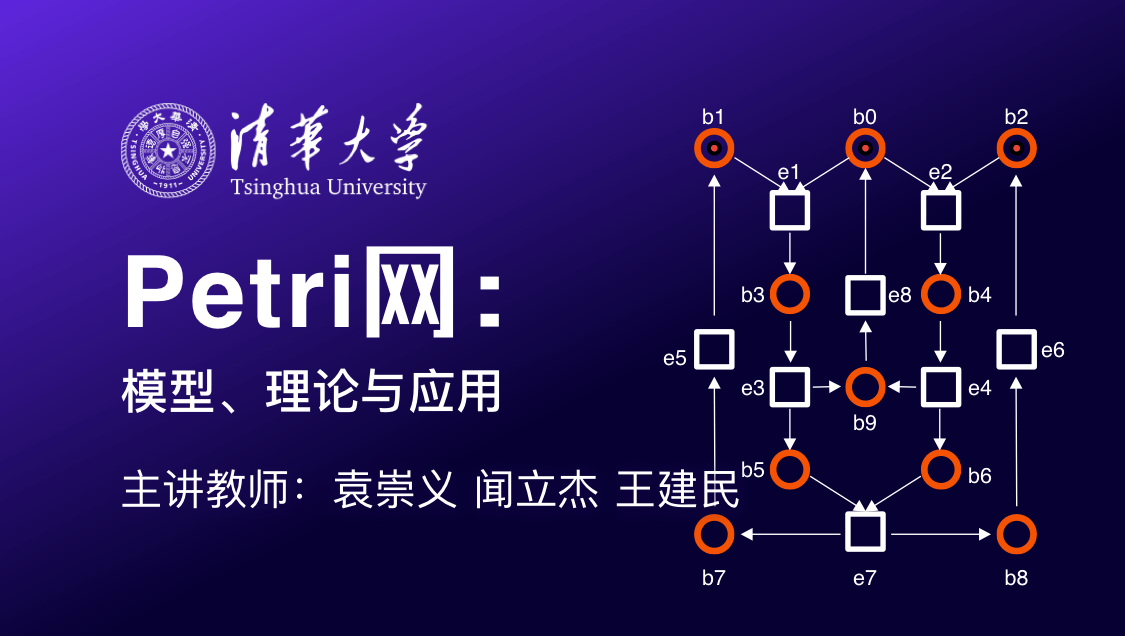
当前课程知识点:国际商务 > 七、国际直接投资与政府干预 > 7.3投资利弊与政府干预 > 投资利弊与政府干预
同学们好
Hello, everyone
我是云南财经大学国际工商学院的尹豪老师
I am Dr. Yin Hao, from the International Business School of Yunnan University of Finance and Economics
这节课我们继续学习国际商务课程的
Today we will continue to learn the chapter of
国际直接投资的利弊与政府对投资的干预
the pros and cons of FDI and government intervention in the course of international business
按照实用民族主义的观点
From the the perspective of pragmatic nationalism
国际直接投资究竟能给参与其中的国家带来哪些收益产生何种成本呢
you may ask what benefits and costs can FDI bring to participating countries
我们分别从
We can analyze this from the perspective of
东道国和母国的角度展开分析
host country and home country respectively
分析的视角是从微观和宏观
We will conduct the analysis from the micro and macro
短期和长期两个维度展开
short-term and long-term two dimensions respectively
微观的视角主要观察生产要素方面
From the micro perspective, FDI will focus on the aspects of production factors
宏观的视角主要观察国家主权和
while FDI will focus on the national sovereignty and
长期经济增长方面
long-term economic growth from the macro perspective
国际直接投资给东道国带来的收益从微观层面上包括
The benefits FDI bring to host countries from the micro level include
资源转移效应
resource transfer effects
就业效应和国际收支效应
employment effects and balance of payments effects
资源转移效应是指资本
The resource transfer effect refers to the input of production factors such as capital
技术和管理等生产要素的输入
technology, and management
给东道国带来直接的好处
which brings direct benefits to the host country
跨国公司具有强大的资金实力
Usually, multinational corporations have strong capital strength
和国际市场融资能力
and financing ability in international market
跨国公司的外部资金投入弥补了
The external capital input of multinational corporations makes up for
东道国资金不足的短板
the shortage of capital in host countries
为了保持竞争优势
In order to maintain its competitive advantage
跨国公司会在国际直接投资中注入先进技术和管理技能
multinational corporations will employ advanced technology and management skills into FDI
这也给东道国提供
which also provides the host country with
快速引进替代缓慢研发的机会
the opportunity to replace slow R&D with quick introduction
国际贸易的产品生命周期理论就解释了这一现象
which is explained by the product life cycle theory of international trade
但是跨国公司往往不会将最先进的技术输出到东道国
But instead of exporting the most advanced technologies to host countries
而是将它们留在母国
multinationals tend to keep them in their home countries
这种对技术输出的阻力
This kind of resistance to technology exports comes more
更多来自于母国政府。
from the home country government
这就形成了母国和东道国的技术代差
In this way, the technological gap between home country and host country was formed
并造就了发达国家主导的
and the division of labor and distribution of
全球价值链分工和产业链分布
global value chain dominated by developed countries were created
高附加值的研发和营销留在了母国
High value-added R&D and marketing remained in the home country
低附加值的生产包装输出到了东道国
while low value-added production packaging was exported to the host country
比如
For example
美国政府对汽车行业
the US government has no restrictions on the technology transfer of
对外投资的技术转移不加限制
foreign investment in the automotive industry
但是对航空航天技术的国际合作
However, the US has imposed a strict blockade on the international cooperation
和技术转移就实施了严格的封锁
and technology transfer in aerospace technology
尤其是对发展中大国
especially for large developing countries
就业效应是指投资建厂带来了新的就业岗位
The employment effect refers to new jobs brought by
就业效应是指投资建厂带来了新的就业岗位
the investment and construction of factories
这是一个直观的感觉,实际情况要复杂得多
But the reality is much more complicated than it looks
投资在不同行业
The employment effect of investment in different industries
不同的投资方式都会产生就业效应巨大差别
and different investment methods varies greatly
甚至产生负的就业效应
and even produces negative employment effects
劳动密集型行业的新设投资对扩大东道国的就业有显著的积极作用
New investment in labor-intensive industries has a significant positive effect
劳动密集型行业的新设投资对扩大东道国的就业有显著的积极作用
on expanding employment in host countries
资本密集型和技术密集型行业的新设投资就业效应相对要弱
while the employment effects of new investments in capital-intensive
资本密集型和技术密集型行业的新设投资就业效应相对要弱
and technology-intensive industries is relatively weak
而并购投资会从效率的角度考虑
However, from the perspective of efficiency
对原工厂进行裁员
mergers and acquisitions investment will lay off the original factories
出现负的就业效应
resulting in negative employment effect
就业效应还应该从动态的角度观察
The employment effect should also be observed from a dynamic perspective
短期内增加就业的外来投资
Foreign investment projects that increase employment in the short term
长期会造成国内竞争者的经营困难和就业转移
will cause business difficulties and employment transfer for domestic competitors in the long term
国际收支效应是指
The balance of payments effect refers to
投资建厂生产出的商品替代了进口商品
the imported commodities replaced by the commodities produced by investment factories
减少了货币流出
as a result, currency outflows reduced
并且这些商品可以出口
These commodities can be exported
增加货币流入
to increase currency inflows and
给国际收支的经常项目带来盈余
bring a surplus to the current account of the balance of payments
20世纪70-90年代
From the 1970s to the 1990s
东亚和东南亚国家和地区引进外资所形成的进口替代和出口导向战略
the import substitution and export-oriented strategies formed by the introduction of
东亚和东南亚国家和地区引进外资所形成的进口替代和出口导向战略
foreign capital in East and Southeast Asian countries and regions have accumulated
东亚和东南亚国家和地区引进外资所形成的进口替代和出口导向战略
a large amount of foreign exchange surplus
为这些国家和地区的经济起飞积累了大量的外汇盈余
laying a solid ground for the economic take-off of these countries and regions
国际直接投资给东道国带来的宏观层面的收益包括
The macro-level benefits brought by FDI to host countries include
引入国外资金所形成的固定资产投资
fixed asset investment formed by the introduction of foreign funds
有利于长期的经济增长
which is conducive to long-term economic growth
并且产业的竞争力得到增强
and the industrial competitiveness is enhanced
形成了一定的竞争优势
forming a certain competitive advantage
宏观层面的优势在原本封闭和受保护的市场表现更加突出
Macro-level advantages are more prominent in previously closed and protected markets
因为外来投资增加了市场自由度
as foreign investment increases market freedom
引入了竞争
introduces competition
提高了厂商效率
and improves the efficiency of manufacturers
从微观层面上
At the micro level
观察国际直接投资给东道国造成的成本主要是
the main cost of FDI to the host country is the increase of
早期的设备和原材料的进口增加了外汇的流出
foreign exchange outflow caused by the import of equipment and raw materials in the early stage
以及后期投资收益的汇出
and the exportation of investment income in the later stage
这两个方面都会造成对东道国国际收支的负面影响
both of which will have a negative impact on the balance of payments of the host country
而宏观层面的东道国成本包括产业竞争的加剧
At the macro level, the cost of host country includes the intensification of industrial competition
使得国内厂商经营困难
which makes it difficult for domestic manufacturers to operate
甚至倒闭
or even bankrupt
并形成外资垄断的局面
and forms the situation of foreign monopoly
也包括为了引进外资而在政策上、资源使用上的让步
It also includes concessions in policy and resource in order to introduce foreign capital
国家经济独立性受到不利影响
which adversely affects the nation’s economic independence
比如中国在早期的招商引资过程中
For example, in early investment promotion and capital introduction process
地方政府会给予外资各种不同的优惠条件
local governments of China would provide various different favorable policies to foreign investment
在各地竞争性招商中
In the process of local competitive investment
就出现给予外商超国民待遇的允诺
the commitments to giving foreign-owned enterprises more favorable
从而损害了地方经济的可持续发展
treatment damaged the sustainable development of the local economy
国际直接投资给母国带来的收益主要包括
The main benefits of FDI to the home country include
逆向资源转移效应
the effect of reverse resource transfer
就业效应和国际收支效应
the effect of employment and balance of payments
但是这些效应的作用机理与东道国的收益机理是不同的
But the mechanism of these effects is different from that of the host country
对母国的逆向资源转移效应是指
The reverse resource transfer effect on
跨国公司向母国输回原材料
the home country refers to the fact that multinational corporations
跨国公司向母国输回原材料
return raw materials to the home country
把在东道国学习到的先进技术
and apply advanced technology
适用技术和管理技术运用到母公司等
applicable technology and management techniques learned in the host country to the home company
通过全球布局
Through global deployment
跨国公司就能够在世界各国寻找
multinational corporations can find primary products
能源、矿产和农作物等初级产品运回母国
such as energy, minerals and crops in all countries of the world
满足母国的生产、生活需要
and send them back to their home countries to meet their production and living needs
关于技术和管理的逆向转移
The reverse transfer of technology and management
我们可以观察联想公司收购IBM个人电脑业务的案例
can be seen in the case of Lenovo's acquisition of IBM's PC business
对母国的就业效应产生在
The employment effect on the home country occurs
国外子公司从母国进口零配件或半成品时
when the foreign subsidiary imports spare parts and accessory or
国外子公司从母国进口零配件或半成品时
semi-finished products from the home country
会推动母国上游厂商的就业
which will promote the employment of the upstream manufacturer in the home country
这种情况在工业体系不完善的发展中国家较常见
This is more common in developing countries with weak industrial systems
在这些国家的投资往往会提升母国的就业
where investment tends to boost employment in the home country
对母国的国际收支效应包括两个方面的来源
The international balance of payments effect on the home country includes two sources
第一是国外利润流回母国
the first is the repatriation of foreign profits to the home country
第二是国外子公司从母国进口
the second is the current account surplus brought by foreign subsidiaries import products
机器设备、原材料和零部件等产品带来了经常项目的盈余
such as machinery, equipment, raw materials and spare parts from the home country
国际直接投资对母国的成本
The costs of FDI to the home country
也是集中反映在就业和国际收支两个方面
will be seen in employment and balance of payments
投资初期的资本输出
The export of capital in the early stage of investment
对母国的国际收支就产生了损害
harms the balance of payments of the home country
当国外子公司的产品替代了母公司原先的出口
When the products of the foreign subsidiary replace the original exports of the parent company
或者子公司的产品返销到母国
or the products of the subsidiary are sold back to the home country
母国工厂的就业和收支都会受到负面影响
the employment and income and expenditure of the factory in the home country will be affected negatively
国际直接投资总体保持增长势头
FDI, on the whole, has maintained a growth momentum
推动了全球经济的增长
which has promoted the growth of the global economy
投资促进了资源的优化配置和生产效率的提高
Investment has promoted the optimal allocation of resources and the improvement of production efficiency
也引起了利益的重新分配
and also led to the redistribution of benefits
对于有利之处政府就会出台支持投资的措施
When there are advantages, the government will have some measures to support investment
对于不利之处政府也会加以限制
Similarly, when there are disadvantages, the government will have restrictions
下面
Next
我们讨论一下母国和东道国分别会采用什么措施来
we will discuss what measures will be adopted by the home country and the host countries to
支持或限制国际直接投资
support or limit FDI respectively
母国政府可以通过提供政策性保险
The home country government can provide policy-based insurance
来支持企业开展对外投资业务
to support enterprises to carry out overseas investment business
政策性保险有政府的支持
Policy-based insurance is supported by the government
保费较低
and has a low premium
政策性保险产品往往是
Policy-based insurance products are often high-risk businesses that
商业保险公司不愿提供的高风险业务
commercial insurance companies do not want to provide
比如针对政治风险和战争风险的保险产品。
such as insurance products for political risk and war risk
政府提供贷款或金融担保也是支持企业对外投资的常用方法
Government loans or financial guarantees
这些贷款往往期限较长
often with longer maturities
利率较低
and lower interest rates, are also common ways to support outbound investment
两国政府签署避免双重征税协议
The agreement on avoidance of double taxation signed by the two national governments is
也是支持对外直接投资的有效手段
also an effective means to support FDI
而限制对外投资的措施包括税收措施
The measures to restrict foreign investment include taxation measures
外汇管制措施和行政命令直接干预等
exchange control measures and direct intervention by administrative orders
税收措施和外汇管制措施
Taxation measures and exchange control measures
对限制对外投资有较普遍的影响
have a more general impact on restricting outbound investment
而行政命令更多的是针对某些特点的行业或领域的对外直接投资
However, executive orders are more for FDI targeted in certain industries or fields
甚至可以用来限制某个具体的企业的投资行为
and can even be used to restrict the investment behavior of a specific enterprise
东道国政府可以通过减税
The host country government can attract investment by means of tax reduction
提供优质或低价的基础设施
providing high-quality or low-cost infrastructure
提供补贴等方式招商引资
and providing subsidies
这些政策所产生的经济成本可以通过投资项目落地后的
The economic cost of these policies can be compensated by the
资源转移效应和就业效应中得到补偿
resource transfer effect and employment effect after the investment projects are settled
当然
Of course
潜在的东道国为了吸引外资
in order to attract foreign investment, prospect host countries
也存在竞争关系
also have competitive relations
也会攀比各自的招商引资优惠条件
and will compare their own favorable terms for attracting investment
而限制外商投资的措施主要有行政直接干预
The main measures to restrict foreign investment include direct administrative intervention
所有权限制和运营限制
ownership restriction and operational restriction
这些措施往往针对某个特定行业,而不具有普遍性
These measures are often aimed at a specific industry rather than universal
比如中国在外商投资领域就列出了
China, for example, lists industries where foreign investment is
限制进入和禁止进入的行业
restricted and prohibited
在国际直接投资这一章
In this chapter
我们学习了国际直接投资的相关概念
we have learned the relevant concepts of FDI
全球跨国投资的发展趋势
the development trend of global transnational investment
投资的方式
he way of investment
投资的基本理论
the basic theory of investment
投资的影响
the influence of investment
政府对投资采取的措施等问题
the measures taken by the government on investment and so on
这一章内容我们就学习到这里
That’s all for this chapter
感谢大家参加
Thank you
-1.1 全球化的概念和内容
-1.2 全球机构和全球化的推动力
-1.3 全球经济的变化和逆全球化的动因与现象
-第一章课后练习
-2.1 政治体制
--政治体制
-2.2 经济体制
--经济体制
-2.3 法律体系
--法律体系
-2.4 经济发展的决定因素
-2.5 经济转型的本质和经济变革的意义
-第二章课后练习
-3.1 跨文化差异的本质和影响因素
-3.2 跨文化差异的影响因素、文化维度和文化演进
-3.3 商务伦理问题的本质、起因和哲学路径
-第三章课后练习
-4.1区域经济一体化的概念及层次
-4.2区域经济一体化的争论
-第四章课后练习
-5.1国际贸易理论
--国际贸易理论
-第五章课后练习
-6.1国家干预国际贸易的原因
-6.2国家干预国际贸易的措施
-第六章课后练习
-7.1投资的现状
--投资的现状
-7.2投资的理论
--投资的理论
-7.3投资利弊与政府干预
-第七章课后练习
-8.1外汇市场
--外汇市场
--外汇市场案例学习
--外汇市场案例分析
-8.2货币体系
--货币体系
-8.3全球资本市场
--全球资本市场
-第八章课后练习
-9.1国际企业的战略
--国际企业的战略
-9.2战略目标
--战略目标
-9.3环境压力
--环境压力
-9.4战略选择
--战略选择
-第九章课后练习
-10.1组织构架与组织结构
-10.2控制、奖励、流程与文化
-10.3战略与组织构架
--战略与组织构架
-10.4组织变革
--组织变革
-第十章课后练习
-11.1市场进入战略
--市场进入战略
-11.2战略联盟
--战略联盟
-第十一章课后练习
-12.1进出口贸易与对等贸易
-第十二章课后练习
-13.1产品策略和分销策略
-13.2沟通策略、定价策略和新产品研发
-第十三章课后练习
-14.1全球生产与供应链管理
-第十四章课后练习
-15.1国际人力资源管理的作用
-15.2人员配备、培训与管理
-15.3业绩评估与薪酬
--业绩评估与薪酬
-15.4国际劳工关系
--国际劳工关系
-第十五章课后练习
-16.1国际会计
--国际会计
-16.2国际企业财务管理
--国际企业财务管理
-第十六章课后练习




